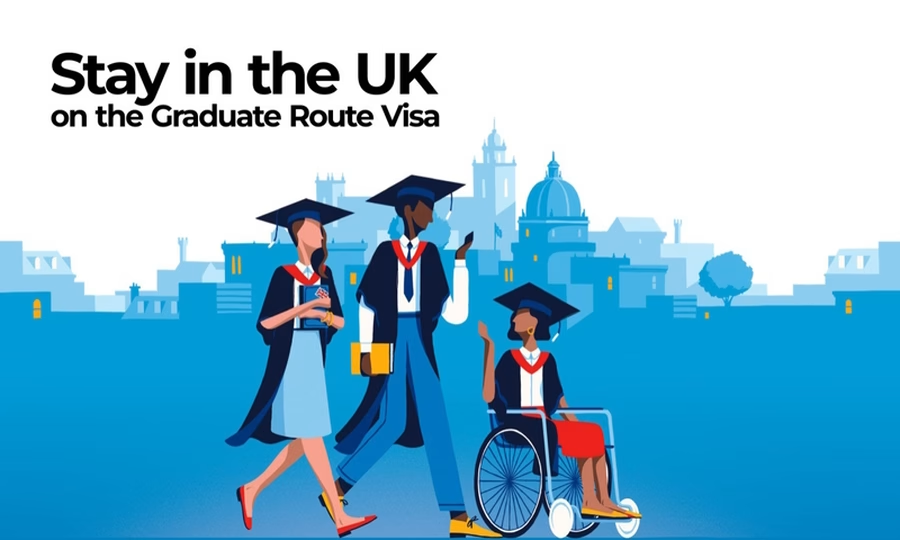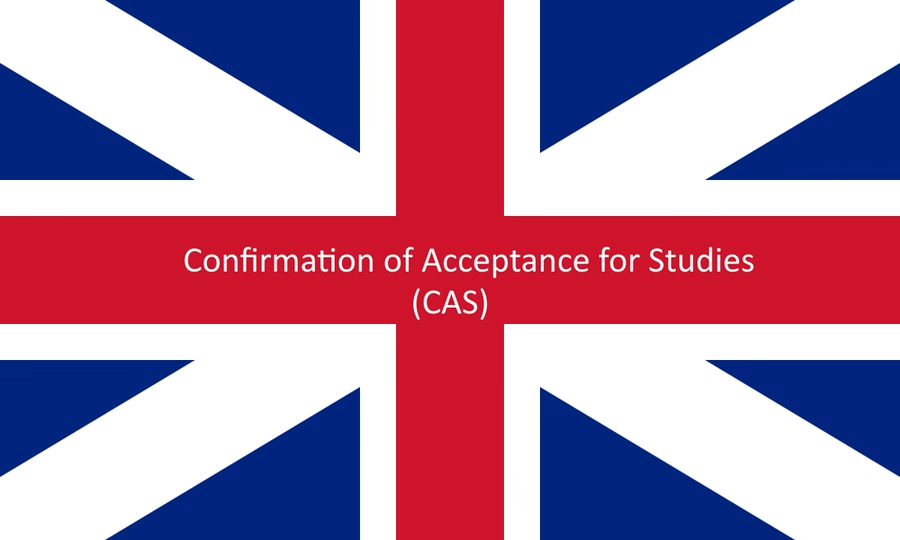How to apply for a Graduate Route Visa
After graduating from a UK university, you generally able to obtain the right to work and live in the UK through a Graduate Route Visa and a Skilled Worker Visa. The Skilled Worker visa has higher requirements for applicants; while the graduate visa is generally easier to obtain for most people. Therefore, this visa is a good opportunity for overseas students who want to work in the UK post-study.
The information contained in this article is accurate at the time of writing and publication, but visa policies change frequently. Therefore, we strongly recommend that you consult a professional visa advisor before submitting your visa application to ensure that you carefully considered all factors that may have an impact on your visa outcome and life goals when applying.
The following introduces the conditions and steps for applying for a Graduate Route Visa:
1. Graduate Route Visa
The UK’s Graduate visa (Graduate visa/Graduate route visa) it means for overseas students who want to apply to stay in the UK to work or look for work after graduation. International students who successfully obtain a bachelor’s or master’s degree can apply to stay in the UK for two years after completing their studies. PhD graduates can apply to stay in the UK for three years.
2. Graduate visa advantages
Unlike the Skilled Worker Visa, the Graduate Work Permit does not require employer sponsorship. You can use your time after graduation to work at any skill level or search for related employment. You can gain work experience, participate in internships or work as a freelancer in the UK depending on what you prefer.
The scheme also does not set a minimum salary requirement, nor does it limit the number of overseas students who can stay in the UK through the graduate category.
Many view the Graduate Route Visa as a stepping stone to get the Skilled Worker visa. Many employers are also willing to increase salary thresholds after several years of work to support such an application.

3. Application conditions
- Be in the UK at the time of application
- You hold a current valid student or Tier 4 visa (not expired)
- Successfully completed a bachelor’s degree, postgraduate degree or equivalent degree in the UK and met the duration of study (visit the following link to see if your course and duration of study meet the requirements: https://www.gov.uk/graduate-visa/ course-you-studied)
- Your education sponsor has informed UKVI that you are eligible, on condition that you have successfully completed your programme.
- You have not held a previous Graduate Route visa (including DES or PSW)
4. Application fee
- Application fee: £822
- Immigration Health Surcharge (IHS): £1035 per year of the prospective visa
5. Application materials
- Passport or other valid document
- Proof of your current student visa such as your BRP card
- The CAS number obtained from the university when you applied for your student visa
Additional materials (provided if necessary):
- When applying for your spouse or children at the same time, you need to provide proof of your relationship with them
- If you have paid for your tuition fees and living expenses through a scholarship or bursary in the past 12 months, you need to provide a letter from your sponsor confirming your application for a graduate visa
- Any other document requested by the UKVI caseworker. Please note supporting evidence is based on your individual circumstances and in certain cases, there may be other required documents. We would advise you contact an official immigration adviser when preparing such a visa application
6. Application Period and Processing Times
You can start your application after receiving confirmation that the university have informed the Home Office (UKVI) of your successful completion. You should remain in the UK during your application as leaving the Common Travel Area can automatically cancel your visa application. Please note the notice should not be your School e-mailing to say all schoolwork has been completed. Instead, it must be an official notification from the university to the UKVI (using their sponsor management system).
Usually, you can apply before attending your graduation ceremony and even before getting your transcripts. This is because as your student visa is usually granted with 4 months of extant leave where there is no academic engagement (unless resitting). You should apply before your student visa expires and this will allow you to remain in the UK with Section 3C leave until a decision is made.This means even if your student visa expires, you will be allowed to legally remain with all the previous visa conditions intact. Standard applications usually take up to 8 weeks to receive a decision.
7. Key steps for online application
- You should apply online using the application portal on https://www.gov.uk/graduate-visa/apply
- GOV.UK website graduate visa application portal: https://www.gov.uk/graduate-visa/apply
- Scan your BRP on the “UK Immigration ID Check” APP to verify your identity. If you are unable to use the app to scan your BRP, you will need to go to a UKVCAS service point to have your fingerprints and a photo taken
- Keep an eye on your e-mail in case a UKVI caseworker gets in touch with you
- You should receive a digital decision and your new visa will likely be held as an e-visa (and certain nationals may also get a new BRP card). The BRP card system is due to be fully digitised by the end of 2024 (so all new visas would then be eVisas)

8. Extra information
- You must apply from within the UK. People applying from outside the UK will be refused entry to the UK and may lose eligibility for a graduate visa. Applications that are refused will not receive an application fee refund but may get the IHS fees returned
- You should not leave the UK or the Commonwealth Travel Area while you are awaiting the outcome of your application. This may affect your eligibility for a graduate visa and prevent you from re-entering the UK
9. Some restrictions and conditions after obtaining a graduate visa
- You will be unable to access most UK social benefits (Public Funds)
- Graduate visa holders cannot bring new dependents. If the dependents meet the eligibility requirements, they can submit an application for the dependents at the same time as their own (in-time) application. Dependants will not be allowed to later join the Graduate visa holder after the visa has been granted
- Graduate visa cannot be extended
- You cannot study full-time programmes that would usually require student visa sponsorship. In such cases, you may need to give up your Graduate Route visa and return to a student visa
Extra things to note
- You are only eligible to apply for a one-time graduate visa
- You cannot switch from a Skilled Worker visa to a graduate visa
- Make sure the CAS status is set to USED. We mentioned this issue in the article “What is CAS”. While in school, students cannot check the status of CAS and can only confirm it by asking the university. If you plan to apply for a graduate visa after completing your studies in the UK, it is strongly recommended that you check whether your CAS is marked “Used” as soon as possible after arriving in the UK. In some cases, errors may occur, causing some CAS to be marked as “Expired” or “Obsolete” by UK Immigration. Therefore, you should contact the university as soon as possible to confirm whether the CAS status is normal. If you find abnormalities in CAS after graduation, the university cannot modify the information on CAS, which may cause unnecessary trouble for you. For more detailed and in-depth explanations about CAS, please visit the following link to read: What is a CAS?

Conclusion
To sum up, the Graduate Route visa is a great opportunity to stay in the UK after your studies. It also gives the UK a competitive edge as most other western countries do not offer any such post-study visa route. This visa route is very unrestricted so while it counts as a short-term work visa, technically you could just use it to live and travel, develop relationships, network or plan your career. Furthermore, it is no problem to travel away from the UK for a considerable period of time. Even if you return to the UK after a year away, your visa will not be cancelled.
However, the visa application process can be complex and requires attention to various details. We recommend that you actively seek professional visa consultants or expert advice to successfully obtain a visa.





